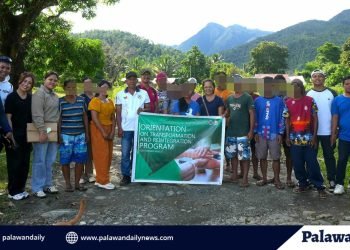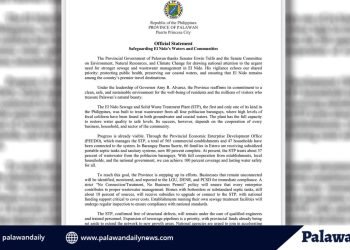In Palawan, a quieter campaign is taking root, one that doesn’t make headlines but could place Palawan among a rare class of rabies-free provinces in the Philippines.
With 11 of its 23 municipalities already declared free from the deadly disease, Palawan is now accelerating its final push to eliminate rabies through a multipronged strategy that blends mass animal vaccination, sterilization, and grassroots education.
At the center of this public health drive is the Provincial Veterinary Office (ProVet), which has vaccinated over 3,000 dogs and cats in the first quarter of 2025 alone. The effort is part of the government’s Rabies Eradication Program, which aims not just to prevent animal bites but to promote responsible pet ownership in a region where domestic animals freely roam.
“Every month of March, ‘yon yung Rabies Awareness Month natin,” said Provincial Veterinarian Dr. Darius Pe Mangcucang in an interview. “Nagco-conduct kami sa mga munisipyo ng information drive, nagmo-motorcade kami, and then after that, merong kaming mga invited na barangay officials and then sa mga schools, yung mga estudyante, nagle-lecture kami about sa pagiging responsible pet owners…”
But the push is year-round. In addition to monthly information campaigns, ProVet is advancing what may be one of the province’s most overlooked public health efforts: controlling the pet population through neutering and spaying.
Male animals undergo castration, while females are spayed, procedures designed not only to reduce stray populations but to limit uncontrolled breeding, which officials say remains a major driver of rabies transmission in rural communities.
Dr. Mangcucang said that curbing the number of strays reduces the risk of rabies outbreaks and encourages community engagement. “Pag nakikita nila na may effort ang gobyerno, mas nagiging involved din yung mga pet owners,” he said.
Palawan’s list of rabies-free municipalities already includes tourist-heavy towns like Coron and Culion, as well as remote islands such as Kalayaan and Cagayancillo. But the real challenge lies in reaching the remaining areas, where dense forest, isolated barangays, and limited access to veterinary services complicate disease surveillance.
The provincial government, in partnership with local governments and the Department of Agriculture, is banking on strong inter-agency coordination to cross the finish line. Each declaration of a rabies-free zone requires two years of zero recorded cases and verified vaccination coverage.
If Palawan succeeds in its goal, it would mark a milestone not only in public health but in how provincial governance can quietly achieve international health benchmarks, far from Manila, but close to the frontlines of everyday public service.























